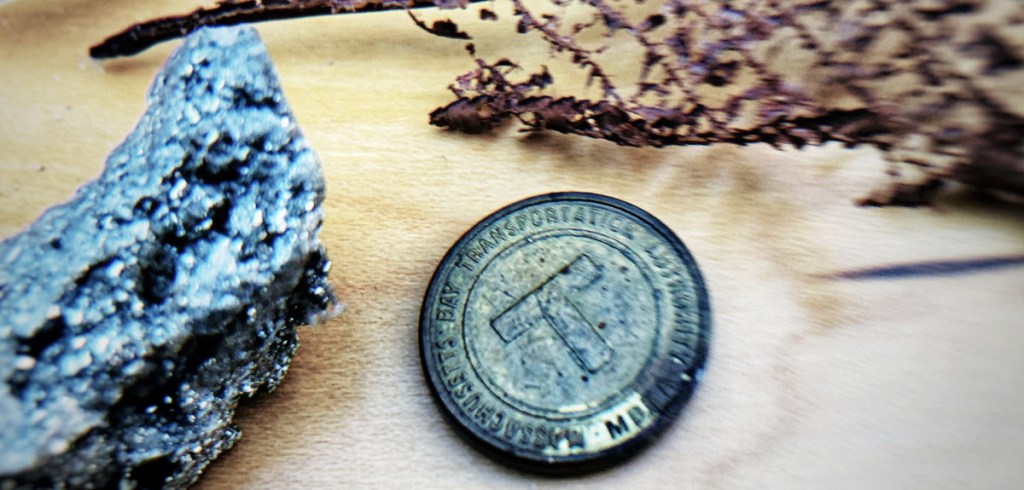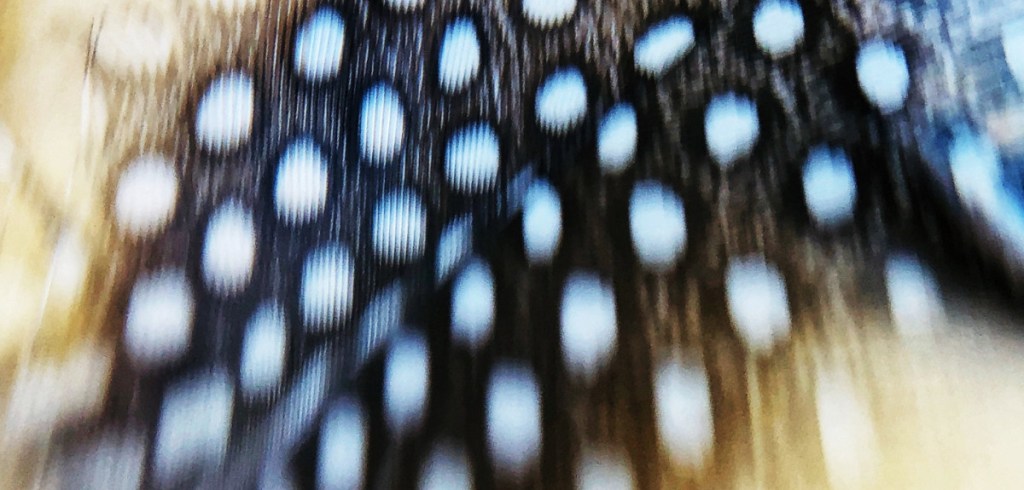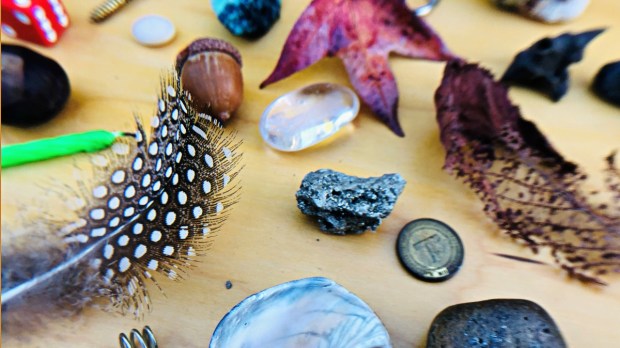My children regularly present me with treasures. Like explorers returned from exotic lands, they slyly unfurl their fingers to reveal a plastic golden coin from a pirate hoard buried in our backyard. The location cannot be shared.
There is a cupcake iced with clumsy hands (my daughters love to be the ones who bring me these), all lopsided and impressed with fingerprints. I gladly accept it.
On our walks in the neighborhood, my youngest daughter points out fallen leaves that stand out because they are bright red or yellow. She gathers each one and tucks it into her pockets. Later I find them stuffed in random books. She also likes to stop and look at the duck egg tucked beneath an iron-railed bridge in the park. We have to be quick. An ill-tempered goose roams the area and attacks all passersby, thus earning a notorious reputation with my family as being nasty. We do have to pause, though, so my daughter can pick up one rock out of ten thousand and save it. It’s an invaluable gem.
Because my children value these things, so do I. Without an innocent child to pluck them from obscurity, however, I never would’ve noticed them. I would have crushed the leaf under my foot without a second thought, failed to see the egg tucked like a pearl in the green clover, never noticed the spray-painted X on the sidewalk left by a utility company, the X that marks the spot, a treasure under my very feet.
The world is a jewel-box, and I would have remained insensible to its sparkle.

Acknowledging what’s important
Essentially, what my children are doing is keeping inventory. They know where their favorite items are, what rewards their attention, and which valuable things need protecting. Their treasures are stored away in fancy boxes and hiding places. Favorite pictures are taped to the walls of their rooms. My children acknowledge what’s important to them, never taking anything for granted.
This is a habit we shouldn’t grow out of as we age. I’ve learned a lot from my children about the attitude with which I ought to approach life. Children can be greedy, just like anyone else, but for the most part their inventory isn’t about the greedy acquisition of the things themselves. They don’t account for their possessions in order to clutch them more tightly.
What they’re doing is marking out which items are beautiful, which ones are valuable, and which ones they’re grateful for. They regularly share or give these items away, or simply leave them in the wild to be enjoyed by others.
Taking inventory
G.K. Chesterton says that one of his favorite parts of Robinson Crusoe is the inventory of all the items that have been saved from the shipwreck. He says this list of items is like a poem. It’s a poetry of limits, a way of acknowledging that he has such-and-such items and nothing else. Crusoe makes his inventory for a practical reason – he wants to know what he has so he can make a plan to live on the island in case he isn’t rescued. He makes the list not to bemoan what has been lost, but to understand what has been found.
Making an inventory is a great idea. I think all of us ought to be regularly writing our own poetry of our limits, as Chesterton would say. Not for the sake of clutching our possessions ever more tightly, but to celebrate what is on the list.
Even further, I suspect that, once the list is started, we’ll be surprised to see how long it grows. That’s the point. We have more to be happy about than we’d ever dreamed. Unless we stop and notice, though, these valuables are forgotten and lost.
Robinson Crusoe’s list of items snatched from the sea reveals that even everyday kitchen tools are heaven-sent, because each tool is one that might have forever disappeared into the sea. It’s a good exercise to look around us, at the books on the shelf, the old piano handed down through generations of family, a random kitchen appliance that makes life easier, the nice soft bed, and consider each item as if it was rescued it from a sinking ship. These items, even the mass-produced ones, took work to make. Someone had an idea and then managed to bring that idea to physical reality. The book, or mixer, or piano was brought into existence and I, of all people, was able to obtain it. It exists. It might not have been, but it is.

An expansive vision
This mental exercise enlarges our vision. The inventory expands beyond the walls of home. The hills and trees, a stream of cold clear water, the stars in the sky, all have been saved from the wreck. Chesterton says that, for precisely this reason, he began to think of the universe as a unique, precious jewel. The cosmos is without peer. It arose from the formless and nameless chaotic waters when time began, shaped by the creative word of God. There can only be one universe.
There’s a film I love called Russian Ark. In it, director Aleksandr Sokurov uses a first-person point of view through his camera to explore the beauties of the Hermitage Museum in St. Petersburg. Eventually, at the end of the film, after a lengthy meditation on the artistic and cultural treasures of Russia, the camera turns to look out a round window, revealing it to be the portal of a ship. The museum is like Noah’s Ark floating on a vast sea. The culture contained within is saved from overwhelming waters, but only with our appreciation and effort. Noah’s Ark represents salvation floating over a vast sea. It is a miracle, not only that it saves us from the destructive flood, but also what it saves along with us. We are surrounded by signs of God’s love, signs of our salvation.
Saved from the wreck
How can we know what has been saved unless we make an inventory? And how can we give thanks unless we know what it is for which we’re thankful?
That’s how I feel after I baptize a baby, thankful that this little one is a miracle saved from the wreck. Pulled from the waters, priceless and beyond compare. If sin has indeed made a wreck of our world and there truly is some primordial disaster in our past, nevertheless it is true that God has helped to save so many goods, including you and me.
There’s no use bemoaning what may have disappeared under the waves when we have before us so much beauty and goodness to be celebrated.



